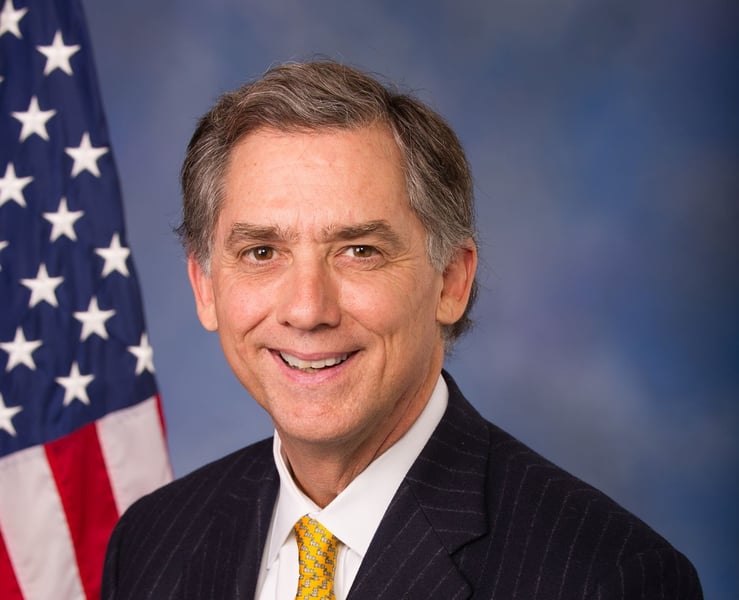A member of Congress who worked under Finra oversight for decades is considering writing legislation that would give the broker-dealer regulator jurisdiction over investment advisers.
“Finra should have that responsibility,” Rep. French Hill, R-Ark.,
a former broker, said at the Financial Industry Regulatory Authority Inc. annual conference in Washington on Wednesday. “They have an excellent network of offices across the country. They know how to do exams, charge fees for exams, have a good relationship” with the entities it oversees.
In a meeting with reporters on the sidelines of the conference, Mr. Hill, a freshman member of the House and a member of thed Financial Services Committee, said he would support legislation to transfer adviser oversight from the Securities and Exchange Commission to Finra, the industry-funded regulator.
He added that he might offer his own bill.
“I'm going to explore it,” he said.
It's not clear what the prospects would be for legislation. The chairman of the committee, Rep. Jeb Hensarling, R-Texas, has not expressed any interest in moving a bill on adviser oversight.
In 2012, Finra, was the leading proponent of a bill that would have shifted investment adviser regulation from the SEC to a self-regulatory organization. The measure died without receiving a vote in the House Financial Services Committee.
Proponents of the bill said it would increase investor protection by boosting the number of adviser exams. The SEC currently examines about 10% of the approximately 11,500 registered investment advisers annually. Finra examines about half of its 4,100 member firms each year.
Since the SRO bill failed, Finra has said it has
dropped its pursuit of adviser oversight. On Thursday, the regulator did not directly address the idea of reviving SRO legislation.
“As we have stated previously, Finra continues to believe that the current levels of investment adviser oversight and examinations are unacceptable and a risk to investors, and that this significant gap in investor protection needs to be addressed sooner rather than later,” Finra spokesman George Smaragdis said in a statement.
The Investment Adviser Association said the SEC should maintain its jurisdiction over advisers. It called on Congress to increase SEC funding or to allow the SEC to charge advisers user fees to fund exams.
“The IAA strongly opposes the SRO model that Finra has advocated for investment advisers,” Neil Simon, IAA vice president for government relations, said in a statement. “That model would impose an unnecessary new layer of regulation and bureaucracy on advisers far beyond what is necessary to increase examinations, while introducing all of the other drawbacks of an SRO: inherent conflicts of interest arising from industry funding and influence; questions regarding transparency, accountability, track record and appropriate oversight by the SEC and Congress; and lack of due process.”
Mr. Hill, a former member of Finra's small-firm advisory board, promoted the self-regulatory model in his speech. He said industry participants can police themselves.
“We are preventing fraud not only through rules but through micro-prudential managers — you — that are leaders in ethics and example and vigorous enforcement of existing laws,” Mr. Hill told the Finra audience.







